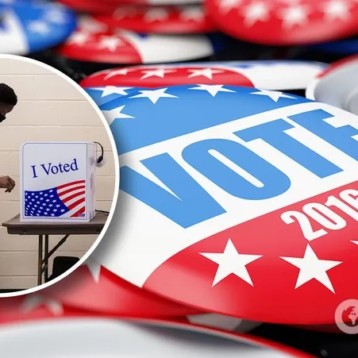It has been four years since Ukrainians took to the streets to call for corruption-free democratic governance and rule of law. Today, with the European project in dire straits, the demand of the Maidan protesters – to move Ukraine out of the orbit of Putin’s Russia and “join” the family of European democracies to which it “historically belongs” has been under serious strain.
As the Russia-sponsored separatist war in its eastern region of Donbass continues, there is an increasingly widespread perception among Ukrainians that their government lacks the political will to fight corruption, which has plagued the country ever since it declared independence in 1991.
As popular disillusionment with the post-Maidan trajectory has increased, populists of all stripes and temperaments have been brought to the surface of Ukraine’s turbulent political waters. What unites them all is their argument that President Petro Poroshenkoand the government are “hopelessly mired in their corrupt ways” and nothing short of another (this would be a third) Maidan revolution could rescue Ukraine.
Though garnering a pretty modest support – a mere few percent of the electorate – by far the most colourful and media-savvy of these is the former president of Georgia, Mikheil Saakashvili.
Stateless and facing a criminal court case in Georgia, Saakashvili was offered Ukrainian citizenship in 2015 and the post of governor of the Odessa region by his former college mate, the Ukrainian president, with a mission to tackle corruption there. After a year of setbacks and lack of results, for which he blamed the entrenched system of patronage and rent-seeking, Saakashvili decided to “go rogue” and entered nationwide politics, convening anti-corruption powwows around the country and eventually creating his own party.
Since then, he has matched his fiery rhetoric, calling for Poroshenko’s impeachment and stiff prison terms for the president’s allies with equally fiery, theatrical actions, often dismissive of state institutions and the rule of law itself. When the government stripped him of his citizenship while Saakashvili was travelling outside the country, he called for his supporters to come to the Polish border to help “carry” him across it, essentially crossing the border illegally. After holding rallies around the country, he made his way to the capital, where he set up a tent camp outside the parliament with a couple hundred of his supporters.
Never able to muster more than a few thousand protesters for his rallies and with media attention dissipating, Saakashvili and his acolytes have gradually heated up their rhetoric, and have welcomed rabidly nationalist and anti-Semitic elements to join their cause. Recently, a member of the anti-EU United Kingdom Independence Party (UKIP), which inspired Brexit, has been spotted standing next to Saakashvili at one such protest action.
Saakashvili’s most recent piece of political theatre may have also been the issue which the fate of this government and the future of Ukraine hinges on. Claiming to have a tape recording of a purported conspiracy between Saakashvili and a runaway crony of the former President Viktor Yanukovych to destabilise the country, Ukraine’s Prosecutor General ordered the arrest of the former.
After giving chase to Saakashvili across the roof of his building in full view of a gathered crowd and media, the police put handcuffs on the politician, only to see him extracted from the police car by his militant supporters. Resisting arrest and going into hiding “in plain view”, Saakashvili was able to hold another public rally, but was eventually arrested and brought before a judge.
The latter’s decision, to release him on his own recognisance pending trial, may have caused a sigh of relief for the government, not thrilled at the prospect of being accused of throwing political opponents in jail. Conversely, it has let some air out of Saakashvili’s political martyrdom balloon.
But if Poroshenko is under any illusion that this sort of cat-and-mouse game with a rogue populist-Che Guevara will get him safely across the sure-to-be turbulent two years remaining until the next presidential elections, and then to victory, he should think again.
First of all, the seriousness of the charges against Saakashvili means that the government should better hope that the recording of the purported conversation passes an independent examination and is admitted as evidence in court. Otherwise, this will be the greatest hoax in the history of modern Ukraine, sure to topple the government.
Secondly, there are signs that support for populist anti-corruption messages and immediate ouster of the government is broadening. Last Sunday’s rally protesting Saakashvili’s arrest was the largest by far, with at least 10,000 participants, including a visibly large middle-class component.
Their number may surely grow, if the government does not at long last show quick and decisive action to eliminate large-scale rent-seeking and safeguard the rule of law and property rights. The president’s rhetoric presenting Ukraine as Europe’s bulwark against “barbarian” Russia is alas, becoming increasingly ineffective, both with crisis-mired and navel-gazing Europeans and with the unhappy, long-suffering Ukrainians.
Whatever the populist excesses and mistakes of Saakashvili and his allies, they cannot justify the president’s refusal to decisively free the economy from illegitimate schemes.
Unless Poroshenko does that, the question contained in the title of this piece will continue looming ever larger over Ukraine.
Origin – aljazeera.com



You must be logged in to post a comment.